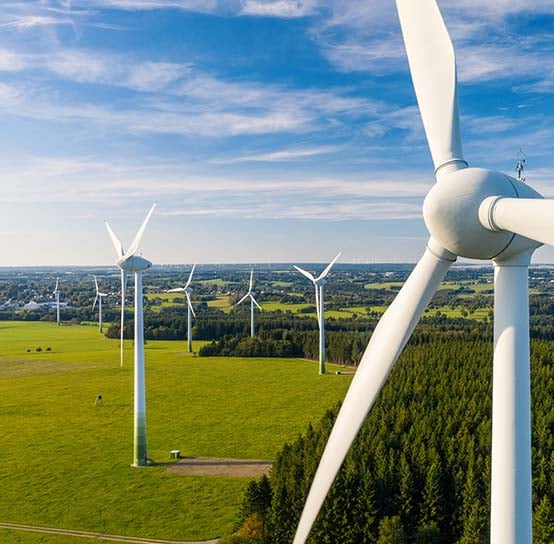For more updates follow Grant Thornton Bharat on WhatsApp

India's mid-market doubles down on sustainability
Sustainability has moved from the margins to the mainstream for India's mid-market firms. Data from Grant Thornton's International Business Report (IBR) for Q2 2025 shows that 79% of Indian firms plan to increase investment in sustainability over the next 12 months, the highest level yet, and well above the global average of 56.5%. In contrast, only 51.4% of Emerging Asia Pacific businesses expect to increase investment.
In India, sustainability is about strengthening market competitiveness. The top factors shaping the sustainability decisions of Indian mid-market firms are brand reputation, market competition, and employee expectations, indicating that mid-market firms see business value in going green. Other factors, such as industry regulation, supply chain, customer requirements, and employee expectations, also play a role. This focus on sustainability is, however, not new. Close to half of Indian firms have invested in sustainability initiatives for over three years, embedding them into their long-term strategies rather than treating them as short-term experiments.
Number of consecutive years businesses have invested in sustainability initiatives
| Region | Started in the last 12 months | More than 1 year but less than 2 years | 2 or more years but less than 3 years | 3 or more years but less than 4 years | 5 or more years | Not started/invested in any sustainability initiatives |
|---|---|---|---|---|---|---|
|
India
|
9.0%
|
17.5%
|
27.7%
|
24.1%
|
21.7%
|
0%
|
|
Global
|
8.1%
|
17%
|
29.3%
|
24.3%
|
17.6%
|
3.8%
|
|
Emerging APAC
|
5.0%
|
15%
|
33.3%
|
29.5%
|
13%
|
4.3%
|
Source: IBR survey data for Q2 2025
Sustainability as a growth strategy
Sustainability has moved to the centre of the business strategy of mid-market firms. It is now seen as a driver of growth, profitability, and global competitiveness. By embedding sustainability, companies aim to strengthen supply chains (72.4%), attract investors (69%), and support international expansion (65.4%). On the commercial front, most expect sustainability to boost long-term revenues and profitability, while many also see it as a gateway to improved access to global markets (63%).
This is backed by substantial progress in the environmental, social, and governance (ESG) strategy. Data shows that 47% of Indian firms have a fully implemented ESG or sustainability plan, while 44% are developing one. Only 9% do not have any ESG plans. Companies also have mature ESG reporting practices, with 32% of firms publishing sustainability reports because they align with their purpose, and 26% doing so because it makes sound business sense.
Most firms are directing their sustainability efforts towards renewable energy, developing sustainable products, and driving social impact, while also committing to carbon reduction and diversity. These priorities show how businesses are working to stay competitive while contributing positively to society.
Top areas of investment in sustainable initiatives
Source: IBR survey data for Q2 2025
Climate change as a business risk
Businesses are treating climate change as a risk they cannot ignore. IBR data shows that 64% of mid-market firms expect climate change to affect their operations, with only 34% saying it won't. Indian companies are not waiting to act and have strong adaptation plans for the year ahead. The top priority is renewable energy, with 67% of companies planning adoption or expansion.
Beyond energy, businesses are embedding climate action across operations: 60% are targeting more sustainable supply chain practices, 53% are investing in carbon-footprint reduction, and another 53% are undertaking climate risk assessments and resilience planning. Water conservation is also high on the agenda, with half of the firms implementing measures. Importantly, 43% intend to engage in policy advocacy, signalling that businesses see a role for themselves in shaping regulations that support climate-friendly growth.
Of the companies that foresee disruption from climate change, 38% expect a very significant impact, while 31% anticipate a significant one. Preparedness levels are comparatively strong, with 75% of firms reporting they are well equipped to manage climate risks and 20% moderately prepared, while only 4% admit to being underprepared. However, progress is tempered by barriers such as regulatory uncertainty and high costs.
What are the main barriers to stronger climate action in your business?
Source: IBR survey of Indian mid-market firms for Q3 2025
Resilience amid pressures
While firms are stepping up on sustainability, it is not without challenges. Rising energy costs (74.1%), economic uncertainty (70%) and shipping expenses (70%) are putting pressure on margins. Yet instead of retreating, Indian mid-market firms are responding by doubling down on renewables, AI, and efficiency-focused models.
When companies scale back on sustainability, it is due to cost and capacity pressures rather than doubts about its value. Indian firms also show resilience amid shifting political currents: 52.4% remain committed to sustainability regardless of regulatory change, while 46% see new directions as aligned with business needs and 43.4% even express relief. This suggests sustainability in India is anchored less in politics than in long-term strategy and competitiveness.
The bigger picture is clear. India's mid-market is leading with purpose. By integrating sustainability with innovation, supply chain resilience, and long-term growth ambitions, firms are positioning themselves as global competitors who see environmental and social performance as inseparable from financial success.
Grant Thornton Bharat simplifies ESG compliance
With our extensive expertise in sustainability reporting and a deep understanding of diverse ESG frameworks, we collaborate closely with organisations to enhance their ESG monitoring, compliance and reporting processes. Our offerings are customised to the unique needs of each industry and encompass ESG diagnostics and due diligence, strategy and roadmap formulation, materiality assessments, and assurance services. Our team of experts also assists in compiling Business Responsibility and Sustainability Reports (BRSR), greenhouse gas (GHG) inventorisation, and conducting capacity-building workshops, all aimed at improving ESG ratings.
Our strategic collaboration with GovEVA, a leading digital ESG SaaS provider, enhances our ability to support your ESG journey. Together, we offer real-time ESG tracking, adherence to global standards (GRI, SASB, BRSR), robust data validation and AI-driven reporting. GovEVA significantly enhances ESG performance and compliance, thereby creating substantial value for all stakeholders.
In addition to working with private enterprises, we provide end-to-end support to government bodies and international organisations, including the United Nations, in developing climate-resilient policies and delivering technical expertise and capacity-building initiatives. Our goal is to drive sustainable transformation and empower organisations to meet evolving ESG requirements with confidence.
About International Business Report (IBR)
The International Business Report (IBR) is the world's leading survey of mid-market companies. Launched in 1992, the IBR now provides insights into the views and expectations of around 10,000 businesses across 28 economies. The research takes place twice a year and involves interviews with chief executive officers, managing directors, chairpersons, or other senior executives from all industry sectors. Questionnaires are translated into local languages, and fieldwork is undertaken through both online and telephone interviews. The IBR data is referenced extensively in thought leadership by the Grant Thornton network and serves as the basis for our Global Business Pulse, the first index to track the health of mid-sized companies at global, regional, country, and sector levels.
